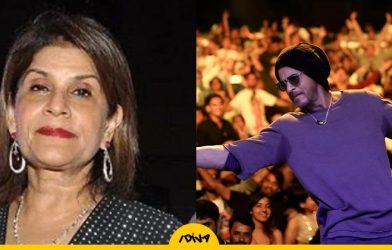It’s been more than 30 years since John Woo first came to Hollywood, and it often feels like he’s been looking for a way back to Hong Kong ever since — or at least a way back to the iconic action filmmaker he was when he worked there in the ’80s and early ’90s. Orgiastically blending the muted cool of a Jean-Pierre Melville neo-noir with the explosive melodrama of a Martin Scorsese crime epic and the florid grandiosity of a Chinese opera, Woo’s elevated style clashed with the meat-and-potatoes ethos of American blockbusters (“Face/Off” endures as a crucial exception, in large part because its story was as heightened as the way that Woo chose to tell it). The same ecstasy that defined Cantonese-language classics like “Hard Boiled” and “A Better Tomorrow” seemed more like self-parody after being translated into “Mission: Impossible 2,” and last year’s dreadfully generic “Silent Night” suggested that Woo had lost whatever was left of his voice as an artist.
Needless to say, I wasn’t exactly filled with confidence when it was first announced that Woo intended to direct a Universal Pictures remake of “The Killer” (arguably the most famous of his Hong Kong films), and the pit at the bottom of my stomach only grew bigger at the news that it would premiere directly on Peacock. The project seemed destined to illustrate Woo’s fall-off on the saddest and most damning of terms; an all-too-fitting deathblow for a director who’s been chasing his own shadow for decades.
By the time I sat down to stream this thing, I was barely holding out hope that it would be watchable, let alone represent a creative renaissance that delivered on the stray promise of 2017’s “Manhunt.” I had no reason to imagine that it would be Woo’s most satisfying movie of this millennium, or that repeating himself would be what finally inspired him to make something fresh. But that’s the beauty of being alive, isn’t it? Sometimes there’s God so quickly — even in the most deconsecrated of churches.
Is “The Killer” (2024) going to be remembered with the same reverence as its namesake? Of course not. It probably won’t even be remembered with the same reverence as “The Killer” (2023). But this fun and delightfully self-possessed August surprise doesn’t harbor any delusions that it will be. In fact, the movie works so well — and remains so light on its feet — because it eschews the life-or-death weight of Woo’s original in favor of focusing on the unbridled joys of resurrection. Wrapped in shiny tinsel where the 1989 film was covered in the blood of Christ, this remake doesn’t shy away from the sheer religiosity of its source material, but it’s so happy for the chance to be reborn that even Woo’s most dedicated fans might forget the cross it has to bear.
And they’ll have to if they want to enjoy how screenwriters Josh Campbell, Brian Helgeland, and Matt Stuecken have reimagined Woo’s story about a disillusioned hitman who develops romantic feelings for the lounge singer he accidentally blinds during his last job — and bromantic feelings for the detective who’s hot on his heels. Trading honorbound tragedy for action-comedy breeziness and the neon buzz of British Hong Kong for the radiant gloss of Olympic-ready Paris, this new version of “The Killer” often seems less indebted to “Le Samouraï” and Scorsese than it does to “Amélie” and Luc Besson. Purists might shudder at the change in tone, but it perfectly dovetails (and pigeon-tails) with the spirit of a director who’s less interested in recapturing the glory of his best work than he is in rediscovering the joy of a job well done.
Zee could definitely understand the appeal of that approach. Played by Nathalie Emmanuel (wooden at first, but gradually warming to her gender-swapped take on a role originated by Chow Yun-fat), Paris’ most elusive assassin insists that she never gets tired of doing something right, but the inherent wrongness of her job might be starting to weigh on her. “Do they deserve this death?,” she asks her handler (an exaggeratedly Irish Sam Worthington) every time he gives her a new assignment, and his reassurance has always been enough to see her through. When tasked with taking out an entire nightclub, however, Zee can’t bring herself to snuff out the beautiful songbird (Diana Silvers as Jenn) who loses her sight in the crossfire.
The decision to keep Jenn safe eventually makes Zee a target herself. On the one hand, her boss is determined to tie up loose ends (there’s some largely irrelevant context involving $350 million worth of stolen heroin). On the other hand, local detective Sey (charming French superstar Omar Sy) is equally determined to catch the killer behind the nightclub massacre, in the hopes that doing so might lead him to the people who ordered it. John Woo fans will be shocked to discover that it all comes to a head in the semi-abandoned church where Zee always hangs out — you know, the one that’s full of birds who always fly in slow-motion.
Which isn’t to say there aren’t a handful of surprises in store along the way. “The Killer” doesn’t stray too broadly from the general structure of the original, but it applies such different pressure to each beat that it feels like a very different film. The scenes between Zee and Sey are sparked to life by a flirtatious charge, and kept alive by a wink-wink energy that would have made it impossible for this movie to sustain the undercurrent of stoic tragedy that carried the 1989 version. Meanwhile, the relationship between Zee and Julia is much softer than the one on which it’s modeled, even if it’s too underwritten to do anything meaningful with the sisterhood of fallen angels that it finds (Silvers’ thankless role leaves her little to do besides blink at nothing and hope nobody shoots her).
But this isn’t really a movie about, how do you say in French… ídeas. This is a movie about the way Emmanuel struts in slow-motion outside of Jenn’s nightclub as smoke billows off of the streets behind her, and how cool it is when she gets through a pat-down by hiding a deconstructed sword in her dress. This is a movie about posing Zee and Sey in a Mexican standoff with Jenn perfectly framed in a wheelchair between them. It’s a movie about the frisky split-screen that Woo introduces into scenes with the improvisational delight of free jazz (all the better to de-emphasize the story with), and the horny saxophone that Marco Beltrami’s score uses to inject actual jazz into the middle of an exuberantly staged hospital shootout (all the better to celebrate the fun of playing).
The action setpieces could be more plentiful, and the ones we get certainly aren’t fueled by the same level of ambition that made some of Woo’s earlier hospital shootouts so explosive, but there’s clear thought behind every bullet fired, and the grand finale is choreographed with such religious glee that you can all but feel Woo’s faith in his own cinema being restored in real-time. It’s not for us to say that every death is deserved, but all of them are so beautifully executed that it’s easy to forgive the unnecessary backstories behind them, just as it’s easy to forget that Woo hasn’t worked on this level in ages. Much like Zee, he just had to remember that, whatever your past sins, it’s never too late to find God all over again.
Grade: B
“The Killer” is now streaming on Peacock.











